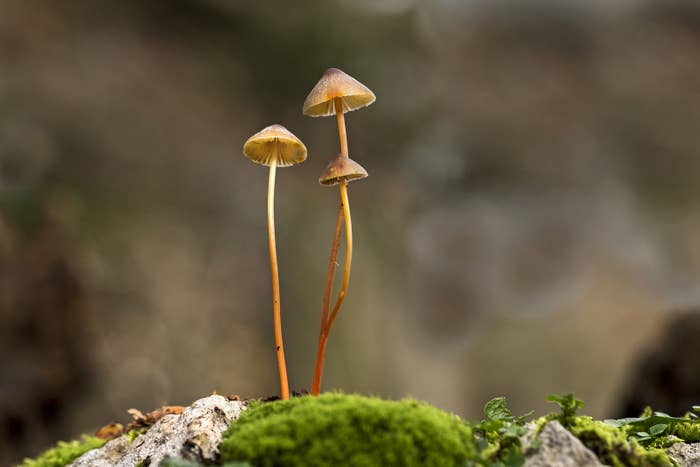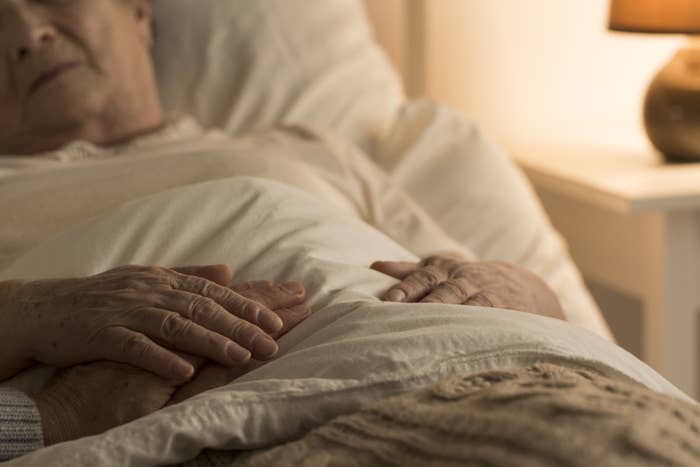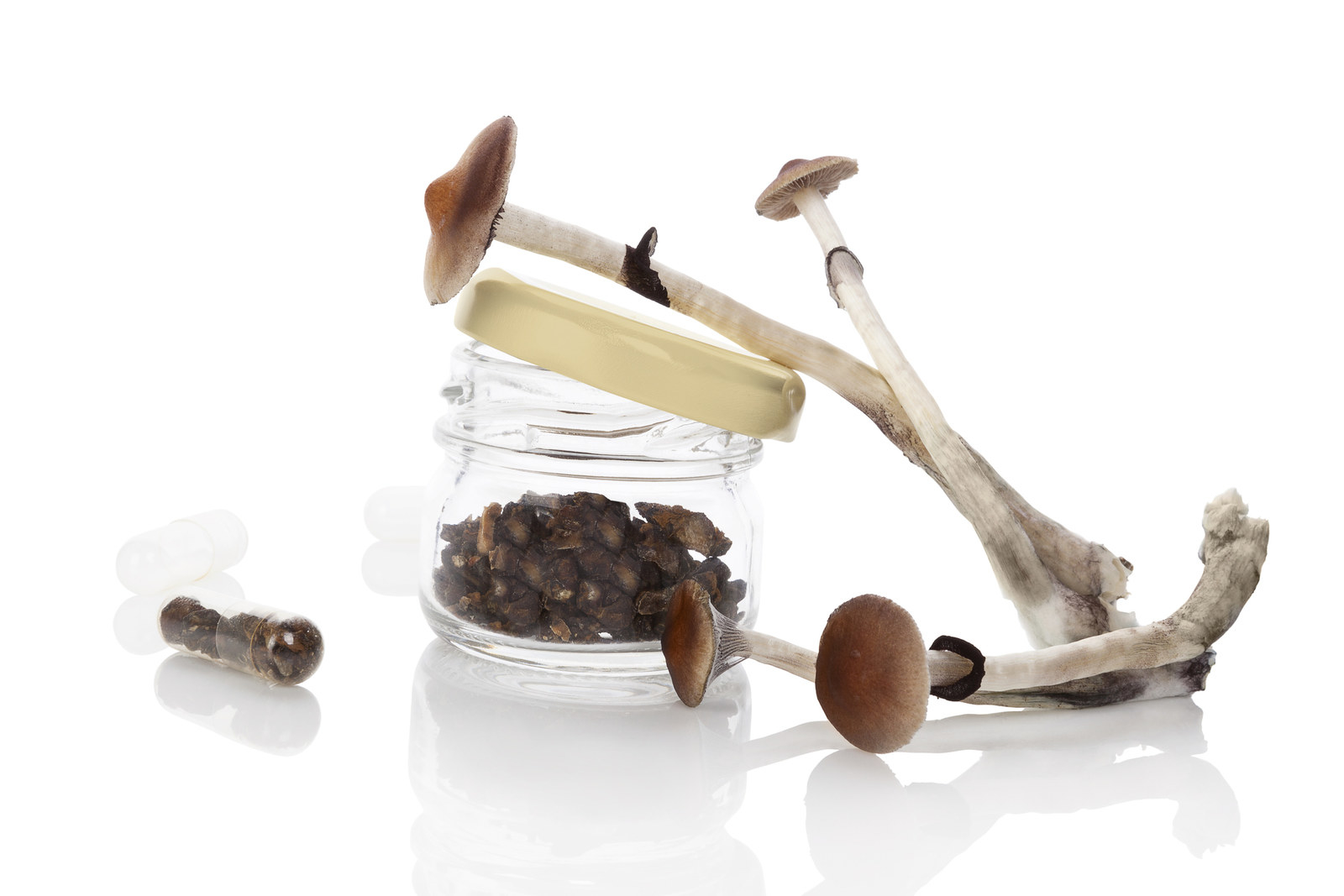
Psilocybin, the psychoactive compound from magic mushrooms, is being used to treat depression and anxiety in terminally ill patients in a new trial at Melbourne's St Vincent's Hospital.
The trial, headed by St Vincent's clinical psychologist Dr Margaret Ross, will begin in April with 30 patients recruited from the hospital's palliative care who have not responded to anti-depressant or anti-anxiety therapies.
The patients will be given a single dose of 25mg of synthetic psilocybin in conjunction with psychotherapy sessions.
Ross told BuzzFeed News that this a mid-range dosage that will provide patients with a psychedelic experience that will last in the range of four hours but they will be supervised for up to eight hours after the psilocybin has worn off.
"We don't want it to be underwhelming, we don't want it to be overwhelming," she said.
"We know that higher doses are associated with anxiety but if it's too low a dose you're not really going to experience that psychological shift in the thinking that we're really looking for."
While Ross said that risk of physical dangers is low, patients with a history or predisposition to psychosis or who have suffered from trauma-related disorders will be excluded from the study.
The rate of depression among terminally ill patients is high, with up to 77% of patients thought to suffer from the condition. It has also been found that the more symptoms that a patient is experiencing of disease, the higher the likelihood that the patient will experience depression.
Anxiety is also common, with up to 48% of terminally ill cancer patients reporting major anxiety symptoms and approximately 14% classify as having an anxiety disorder.
Dr Vince Polito, a researcher from the Department of Cognitive Science at Macquarie University who is not involved in the study, told BuzzFeed News that internationally results with psilocybin in depression and anxiety treatment have shown a lot of success so far.
"It's reasonably early days for this kind of research but the results have been really promising. There have only been a handful of studies but they've had quite dramatic results," he said.
So, how does the magic mushrooms compound help to treat depression?
In a 2016 study led by Johns Hopkins University, a high dose of psilocybin (20mg per 70 kilograms of body weight) produced a substantial decrease in depression and anxiety symptoms among terminal cancer patients that was sustained after a six-month follow-up.
The Johns Hopkins researchers found that participants attributed improvements in attitude, mood, relationships, and understanding of spirituality to their dose of psilocybin.
Ross notes that the St Vincent's trial will expand on this research by including terminally ill patients with more forms of illness including kidney and respiratory diseases.
Previous studies have shown that psilocybin is effective in treating forms of depression that are resistant to traditional treatment methods.
"There is this small subset of people with depression for whom at the moment we just don't have any treatment gaining any kind of traction," said Polito.
"These initial reports indicate that psychedelics may be effective in these cases where other treatments haven't worked."
A study from London's Imperial College in 2017 showed decreased depressive symptoms in patients with treatment-resistant depression after receiving two doses of psilocybin (a small 10mg dose followed by a 20mg dose one week apart) in addition to therapy.

The Imperial College study also looked at fMRI scans of the participants' brains before and after their doses and found that the brain activity had changed significantly; the fMRI's showed decreased blood flow to the amygdala (the emotional-processing centre of the brain responsible for fear reactions).
Previous studies have also shown that psilocybin decreases activity in the default mode network (DMN), which is network of brain structures associated with recalling memories, daydreaming, and thinking about the future.
The DMN is associated with understanding of oneself in reference to memories as well as the theory of mind – understanding other's motivations and actions.
Patients with depression have shown increased DMN activity, which is associated with depressive rumination.
A 2018 article by oncologist and palliative care physician, Dr Anthony L. Black, published in the Journal of Palliative Medicine, titled What Psilocybin Taught Me About Dying describes Black's personal experience taking the drug and how it changed his perceptions of self in reference to the world.
Black describes a sensation of having "small and banal" concerns seem insignificant as having his "small self" fall away.
"What has changed is that I know now that it is possible to allow the small self to dissolve in a way that feels exhilarating...
Could there be a way to talk to patients about goals that leaves this possibility open, that doesn't restrict me to the realm of this small self?"

Polito notes that it is also important to understand how taking a psychedelic can be a significant and impactful event that can alter people's psychology. Polito said that the lasting effects can be thought of as similar to those experienced when somebody develops post-traumatic stress disorder (PTSD).
PTSD is developed after a single intense and traumatic event, which has marked effects on the brain and causes lasting changes that are difficult to alter with therapy and medication.
"The idea of this analogy is to kind of think about what happens in a psychedelic session as almost a positive opposite of that," said Polito.
However, Polito also stresses that there are no guarantees with a powerful psychedelic such as psilocybin and its effects have to be managed skillfully to see the psychological benefits.
"The role of context, both the environment and the person's mindset (their beliefs, expectations, mood) are crucially important.
"A key feature of all of these studies is that they painstakingly manage and curate safe, supportive environments for participants."
The St Vincent's trial is the first research to be conducted in Australia using psychedelics and it has taken more than a year to be approved by ethics committees.
Ross said that the process for approval was "arduous" and required going to painstaking measures in the experiment to mitigate risk and get approval to use the prohibited substance.
Polito said that the fact that Ross's study is the first in Australia is exciting but also shows how far behind international research Australia is in this area.
"There's been problems with groups who have wanted to do research for example using MDMA as a treatment and haven't been able to find ethics committees who will even review the work.
"We're one of the only top research countries that hasn't had psychedelic research – until now," he said.
